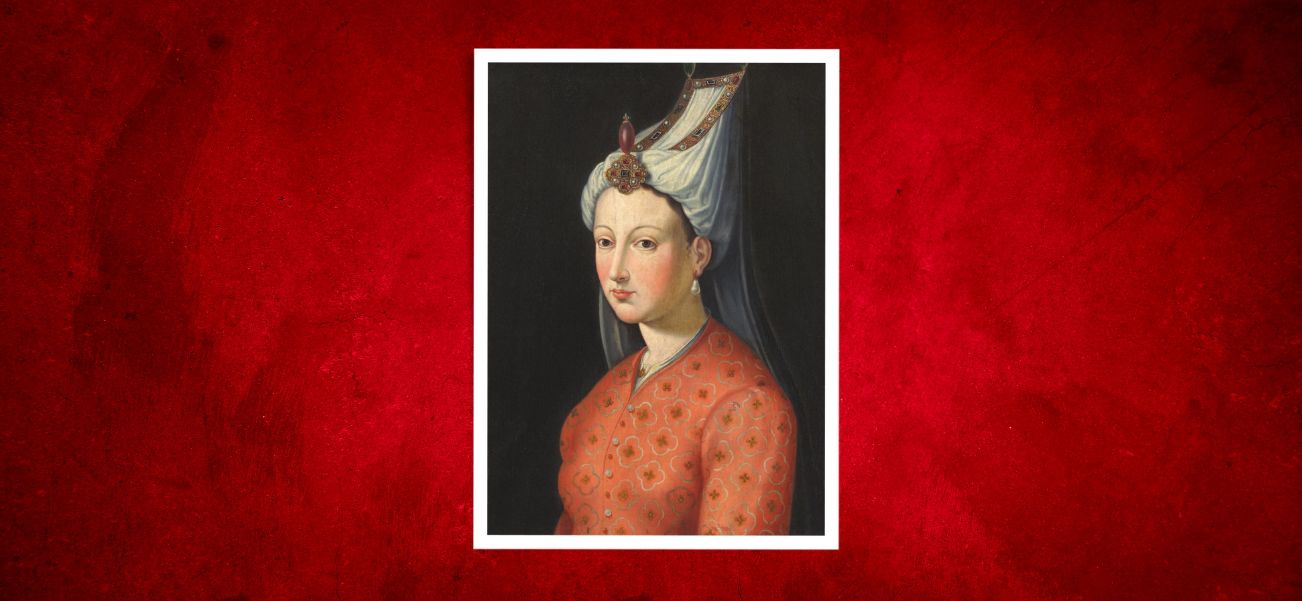
Hürrem Sultan: From Slave to Ottoman Empress
The Ottoman Empire ranks among history's most formidable dynasties, and at its core were extraordinary women who played pivotal roles in shaping its course. One such figure was Hürrem Sultan, who rose from enslavement to become the cherished wife of Sultan Süleyman the Magnificent and an influential force in the empire's politics.
Hürrem Sultan and the Rise of Imperial Women in the Ottoman Empire
Listen to Hurrem Sultan's story:
From Captive to Consort: Hürrem’s Early Life
Hürrem Sultan, originally named Alexandra or Anastasia Lisowska, was born around 1502 in Ruthenia, present-day Ukraine. After being captured in a Tatar raid, she was brought to Constantinople and sold in the slave markets, eventually being chosen for the imperial harem.
Given the name "Hürrem," meaning "the joyful one" in Persian, due to her lively personality, she soon attracted the attention of Sultan Süleyman. Unlike many other concubines, Hürrem stood out not just for her beauty but also for her intelligence, education, and political insight.
St. Nicholas of Myra (Antalya): From Bishop to Santa Claus
Breaking Traditions: Süleyman’s Great Love
Traditionally, Ottoman sultans maintained several concubines, with only one typically giving birth to an heir. Hürrem, however, broke with convention by becoming Süleyman’s exclusive companion—an extraordinary departure from custom. Their deep bond led Süleyman to shatter centuries of tradition:
- He married her, making her a legal wife, a rarity for Ottoman sultans.
- She bore him six children, including the future Sultan Selim II.
- She remained by his side for decades, advising him on politics and diplomacy.
The House of Virgin Mary: A Sacred Destination in Ephesus
The Power Behind the Throne
Hürrem Sultan was far more than just a consort—she was a skilled diplomat and philanthropist. She:
- Corresponded with foreign rulers, including King Sigismund II of Poland, negotiating peace treaties.
- Commissioned grand architectural projects, including mosques, schools, and hospitals in Istanbul, Mecca, and Jerusalem.
- Influenced succession politics, ensuring her sons' rise to power, which led to her son Selim II becoming the next sultan.
Controversy and Legacy
Hürrem’s exceptional influence stirred envy and stirred controversy within the court. Key figures such as Grand Vizier Ibrahim Pasha and Süleyman’s first wife, Mahidevran Sultan, viewed her as a serious threat. Nevertheless, her sharp intellect and strategic thinking enabled her to outwit her rivals.
When she died in 1558, Süleyman was heartbroken. She was buried in a grand mausoleum near the Süleymaniye Mosque, a testament to her enduring legacy.
Hürrem Sultan in History and Pop Culture
Today, Hürrem is remembered as a trailblazer—a woman who defied expectations and wielded power in a male-dominated empire. Her life has inspired books, TV series (such as "Magnificent Century"), and countless debates about her role in Ottoman history.
From a captured slave to the most powerful woman in the empire, Hürrem Sultan’s story is one of resilience, intelligence, and ambition—a true legend of the Ottoman golden age.
What do you think about Hürrem Sultan’s legacy? Share your thoughts in the comments!
ARE YOU LEARNING TURKISH?
Learn Turkish yourself with Dem Turkish Center!














